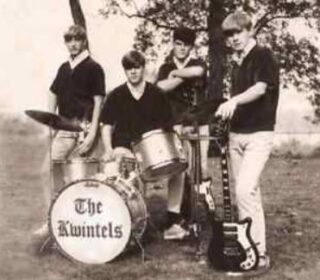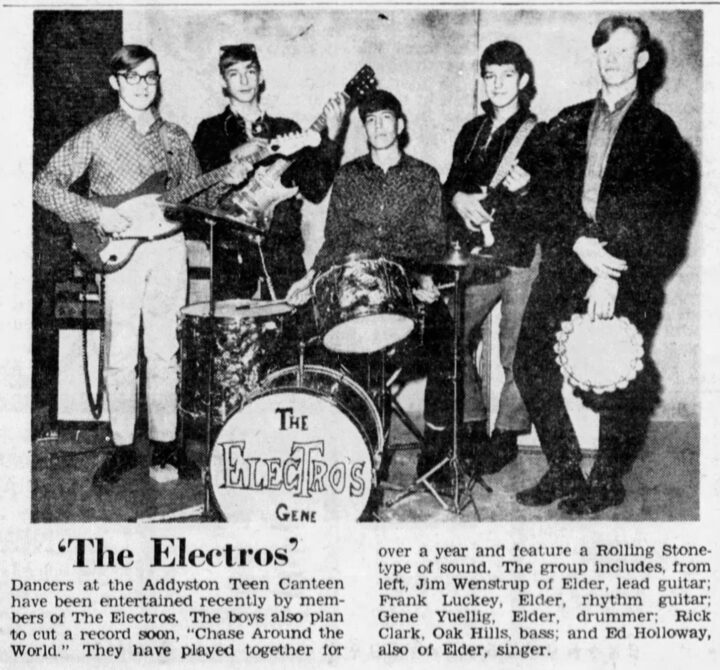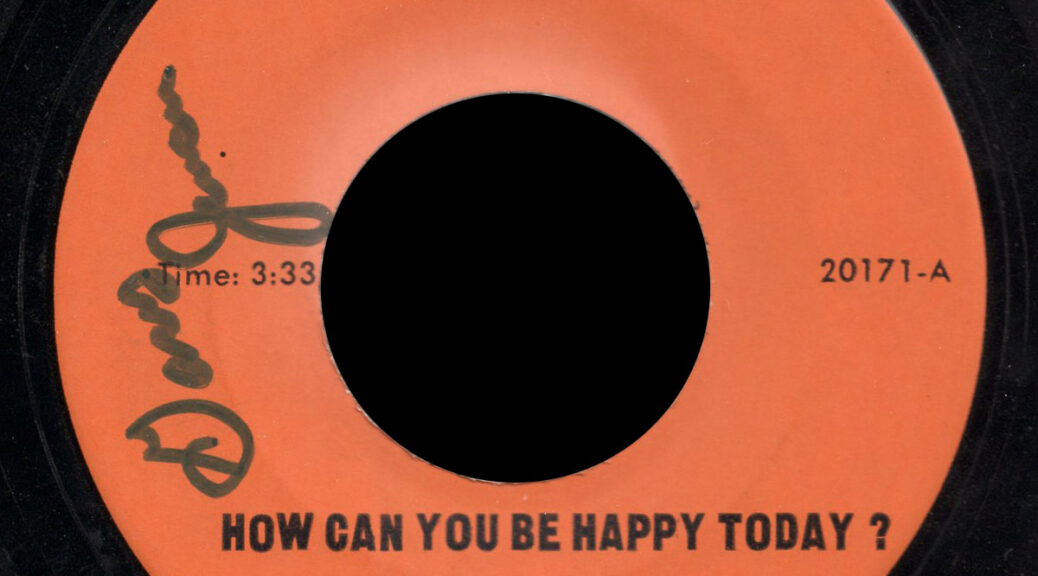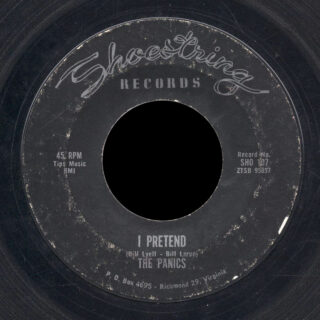 According to guitarist Joe Memmer, this psych-driven single, which features Dave Gilbert on lead vocals, was recorded in 1968 at Ralph Terrana and Al Sherman’s Tera Shirma Studios. The band paid for the sessions, themselves. Carl Cisco, who managed the career of CKLW DJ Tom Shannon, earned his production credit on the single as result of his bringing in Motown’s horn section for the sessions. Shannon, in partnership with Carl Cisco and Nick Ameno—both of the Antiques, the Buena Vistas, and the LaSalles—operated the Detroit-based Marquee Records.
According to guitarist Joe Memmer, this psych-driven single, which features Dave Gilbert on lead vocals, was recorded in 1968 at Ralph Terrana and Al Sherman’s Tera Shirma Studios. The band paid for the sessions, themselves. Carl Cisco, who managed the career of CKLW DJ Tom Shannon, earned his production credit on the single as result of his bringing in Motown’s horn section for the sessions. Shannon, in partnership with Carl Cisco and Nick Ameno—both of the Antiques, the Buena Vistas, and the LaSalles—operated the Detroit-based Marquee Records.
 Carl Cisco’s production assistance resulted in “Decision for Lost Soul Blue” being issued on the Marquee label around December of 1968, with the B-side, “What Makes You.” Making the regional sales charts via airplay on CKLW Toronto and WKNR Detroit, the single went on to have a three-week run as the “Pick of the Week” on CKLW. Impressed with the sales and airplay, Atco/Atlantic picked up the record for national distribution, issuing the single in March 1969. (The label variations of the Atco version are result of different pressing plants manufacturing the record. On those releases, the A-Side title was expanded to “(Day of) Decision for Lost Soul Blue.”)
Carl Cisco’s production assistance resulted in “Decision for Lost Soul Blue” being issued on the Marquee label around December of 1968, with the B-side, “What Makes You.” Making the regional sales charts via airplay on CKLW Toronto and WKNR Detroit, the single went on to have a three-week run as the “Pick of the Week” on CKLW. Impressed with the sales and airplay, Atco/Atlantic picked up the record for national distribution, issuing the single in March 1969. (The label variations of the Atco version are result of different pressing plants manufacturing the record. On those releases, the A-Side title was expanded to “(Day of) Decision for Lost Soul Blue.”)
The Free remained together for about a year, until Dave Gilbert left to become the lead vocalist for Ted Nugent in January 1971. While he doesn’t appear on the album, Gilbert toured Nugent and the Dukes’ fifth release, Survival of the Fittest (1971). According to Memmer, Dave’s hard partying lifestyle conflicted with Nugent’s anti-drug stance (which caused him to dissolve the Amboy Dukes in the first place); that, in addition to Dave’s desire to start a band proper with his brother Marc, resulted in Gilbert’s departure.

Joe Memmer and Dave Gilbert starting writing songs again and, along with Gilbert’s brother, Marc, formed Shadow. The band recorded a pair of singles in 1972 for Clean Records, an Atlantic subsidiary operated by Robert Stigwood and Rolling Stone Records’ Earl McGrath; the label’s other signings were the commercially-successful soft-rockers America and Starbuck. According to Memmer, Gilbert’s drug use, compounded with his reluctance to work with Stigwood’s suggestions for the band (adding string orchestrations; remembering Stigwood managed-produced the Bee Gees at the time), soured the deal.

By 1974, Gilbert moved to Los Angeles and joined the Stooges’ guitarist Ron Asheton and MC5’s drummer Dennis Thompson in New Order; the band also included KJ Knight from the Amboy Dukes. Marc Gilbert’s next band, the hard-rocking Adrenalin formed in 1977, recorded two albums issued through MCA Records in the early-to-mid ‘80s.
Joe Memmer became a non-recording member of Detroit’s Pendragon from 1977 to 1981; Pendragon eventually recorded two 7” singles with Rick “The Lion” Stahl, formerly with the Wilson Mower Pursuit and Sincerely Yours.
The late Dave Gilbert achieved national success as the frontman for the Rockets, which he joined in late 1975. Comprised of ex-members of Mitch Ryder and the Detroit Wheels, the Rockets’ biggest hit was their cover of the early Fleetwood Mac tune, “Oh, Well.”
Today, Joe Memmer serves as the lead guitarist for the nationally, critically-acclaimed Doors tribute band, the Detroit Doors.




































































